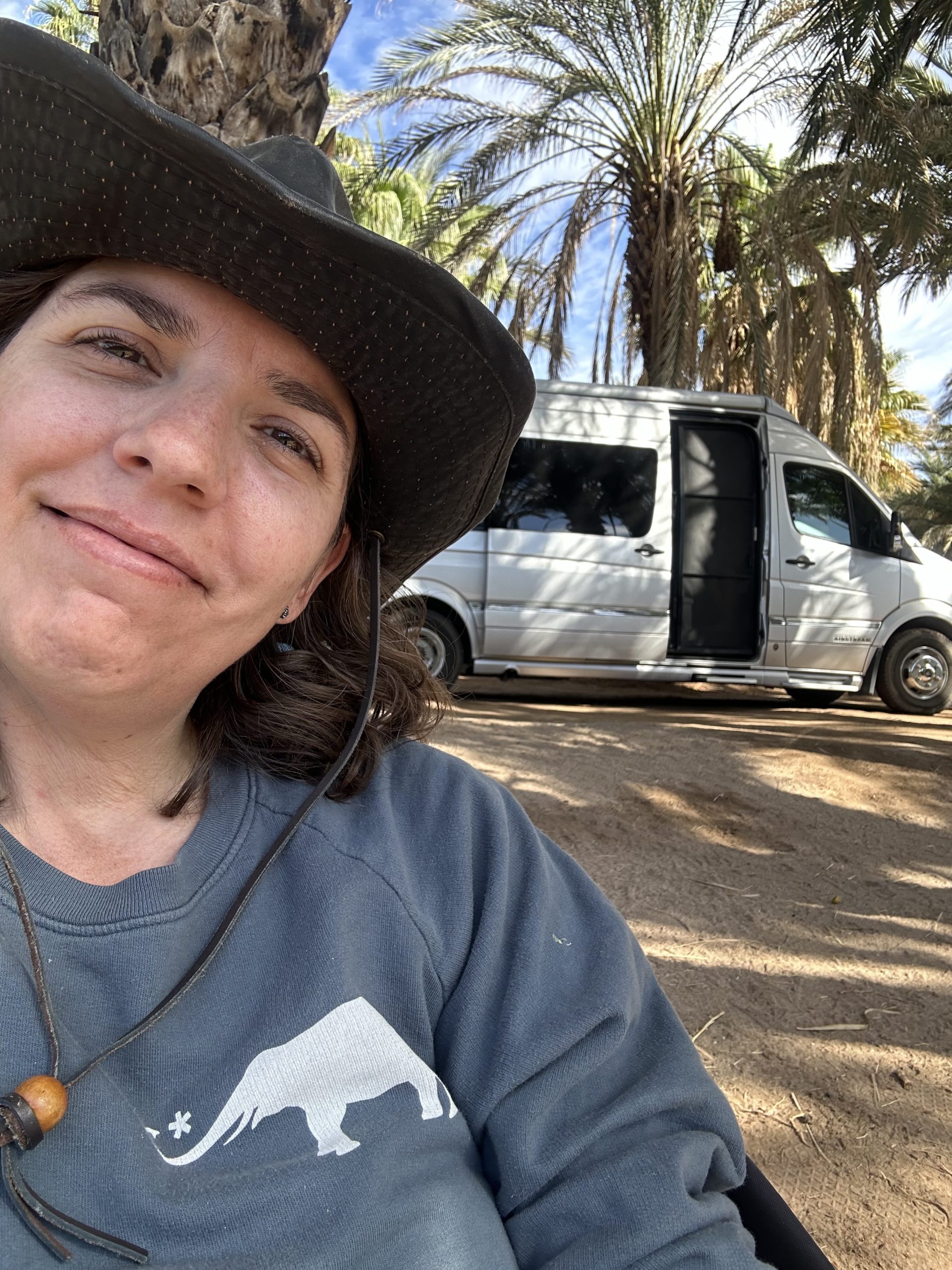
*Did you know you can write on Elephant? Here’s how—big changes: How to Write & Make Money or at least Be of Benefit on Elephant. ~ Waylon
I’m trying hard to figure out this maitri thing.
I do understand it—at least intellectually or logically.
I know that maitri is the Buddhist practice of showing ourselves loving-kindness and making friends with yourself—all of yourself—the good parts and the bad. I also know it means showing the same compassion to all sentient beings, a class of which all of us humans are assigned.
“Knowing maitri or being able to describe it has almost no relation to realizing maitri.” ~ Waylon Lewis, Founder and Editor-in-Chief of Elephant Journal
Understanding the philosophy of maitri is necessary, but it isn’t the same as practicing it.
One of the key components of the practice is meditation, and my ability to consistently meditate has only existed in spurts of several months at best and a few days in a row at my worst.
I participated in the Elephant Academy’s recent online maitri course and on our first live training, I bravely admitted to Waylon (and the rest of my fellow classmates) that while I understand what maitri is, my struggle is actually practicing it and turning off my mean inner voice.
Waylon’s response to my admission was, “You are not special in the sense that there have been billions of human beings who can practice maitri and you’re the one who can’t. You are special in the sense that you are fundamentally good and capable of practicing this. You are. That is guaranteed by the Buddha and by all of our ancestors.”
People say knowledge is power, and I agree with the sentiment to some extent.
Knowledge isn’t everything, however. It doesn’t magically heal us just because we have an explanation of why we can’t function, why we are sad, or why we feel broken inside.
Knowledge doesn’t solve anything just because we possess it.
Having the knowledge of my childhood trauma or being born into a family with a history of depression and likely Attention Deficit Hyperactivity Disorder (ADHD) hasn’t instantly made me feel less sad or overwhelmed with my life due to having these disorders.
Having the knowledge of why I struggle the way I do hasn’t suddenly made me do better or feel better about myself. The head-trash pile always seems just too big to ever fully clean up.
I try and often succeed to give myself grace because of the knowledge of my basic goodness, but eventually there comes a time when no amount of grace is enough to override the fact that I’m not doing the work to overcome—or rather, learn to function with—my disorders.
The only way that can happen is with action, or practice. One action I have taken is therapy, which is helping tremendously, but it’s not enough on its own.
Maitri could be the answer if I would only get disciplined and stick to practicing it.
But having ADHD (as well as recurring depression) makes it hard to do anything consistently. It tends to make the simplest tasks become proverbial mountains out of mole hills. And my ADHD feels out of control lately.
Routine is hard for me. Time is always skewed; punctuality doesn’t exist.
Schedules are a joke.
Undesirable tasks and habits—no matter how good I know they are for my physical and mental health—are ignored.
Unless it’s fun and exciting, I don’t want it.
If it’s boring, it’s unrewarding; if things are hard or stressful, I avoid them.
ADHD has hijacked my brain’s natural reward system.
Life can get easily overwhelming and then the depression sneaks in with an irresistible pull into my dark, safe, and lonely isolation cave.
My therapist is helping me make sense of it all, though.
She advises me to journal about my feelings and set timers to complete the mundane tasks that feel way too long and impossible to tackle. A favorite phrase we’ve coined together is, “When in doubt, break it down.”
She encourages me to forgive myself when I fail, and to notice the times—no matter how minute—that I succeed.
She tells me to use deep breathing techniques to get through stressful, crazy-brain moments and reminds me that meditation would be beneficial to develop more awareness of big feelings so that I can stop fixating and learn to let them go.
Little does she know that she’s advising me to practice maitri.
She wants me to be less hard on myself, to accept my disorders rather than fear them—rather than push them away or hide from them—and learn to love and be kind to myself above it all.
Interestingly, it’s believed that mindfulness can be a tool to foster psychological well-being. Seems like the Buddha was on to something, eh?
I recently experienced an example of how my mind can spiral out of control.
I’m currently road-tripping in my van down the peninsula of Baja California in Mexico. A few days into our travels, I had a conversation with a local camping near us with his family, and I wondered if I might have offended him when he asked about the price of our camping chairs.
Mindlessly, I rubbed my thumb against my first two fingers, making the universal gesture indicating they were expensive and later worried I was being presumptuous that he couldn’t afford them.
He showed no indication of being insulted, but after some time had passed, my mind couldn’t let it go, ruminating and overthinking—allowing my mean inner voice to scold me for making assumptions of his financial status because he lived in a place known to have a largely poor population.
When I couldn’t stop thinking about our conversation, my heart anxiously racing over my insensitive privilege, I felt ashamed. I finally woke up to what was happening in my mind and heard my therapist’s voice in my ear.
I heard her say that I didn’t know if he was actually offended and to take some deep breaths to jolt my brain out of my stressful, negative thought loop.
And it worked.
I was able to self-soothe and calm myself down. I reminded myself that I am a good and caring person who didn’t mean to hurt him (whether I did or not didn’t matter) and was able look at the experience as a teaching moment to remember that I can and will do better next time.
This is how I know that practicing maitri along with continuing my therapy may just be the key to feeling better about myself regardless of my accomplishments or mistakes.
It is the way I may finally learn to stop believing the mean things my inner voice tries to convince me about myself, not by pushing her away or hiding from her, but by listening and kindly disagreeing while giving her a big ‘ole bear hug and loving her anyway.
“If you go deeper and deeper into your own heart, you’ll be living in a world with less fear, isolation, and loneliness.” ~ Sharon Salzberg
I believe maitri and therapy can complement each other. And perhaps, when I become committed to a regular and consistent maitri practice, eventually I may not even need regular therapy to manage my symptoms of ADHD and depression anymore.
“One of the qualities of maitri is steadfastness, and that’s developed through meditation. So through boredom, through aches, through indigestion, through all kinds of disturbing memories, to edgy energy, to peaceful meditation, to sleepiness, it’s steadfastness. You sit with yourself, you move closer to yourself, no matter what’s going on. You don’t try to get rid of anything—you can still be sad or frustrated or angry. You recognize your humanity and the wide gamut of emotions you might be feeling.” ~ Pema Chödrön
So, it’s time to get serious, in a nonaggressive way, about a regular meditation routine. It’s the only way to progress on the path of maitri, to truly befriend myself beyond the simple knowledge that it’s what I should be doing.
“When you meditate, your problems stop being solid. It’s not that they go away, but we stop taking them super seriously. We can actually have a sense of humor or a sense of gentleness about ourselves and about others.” ~ Waylon Lewis
I already know I may fail at times, and that’s okay. I can still be my own friend. I can forgive myself and still be there for myself when I fail. I can get back up and try again.
I can only fail when I’ve tried, and trying is enough. Trying is the practice and I am enough.
~
{Please consider Boosting our authors’ articles in their first week to help them win Elephant’s Ecosystem so they can get paid and write more.}


 Share on bsky
Share on bsky




Read 8 comments and reply